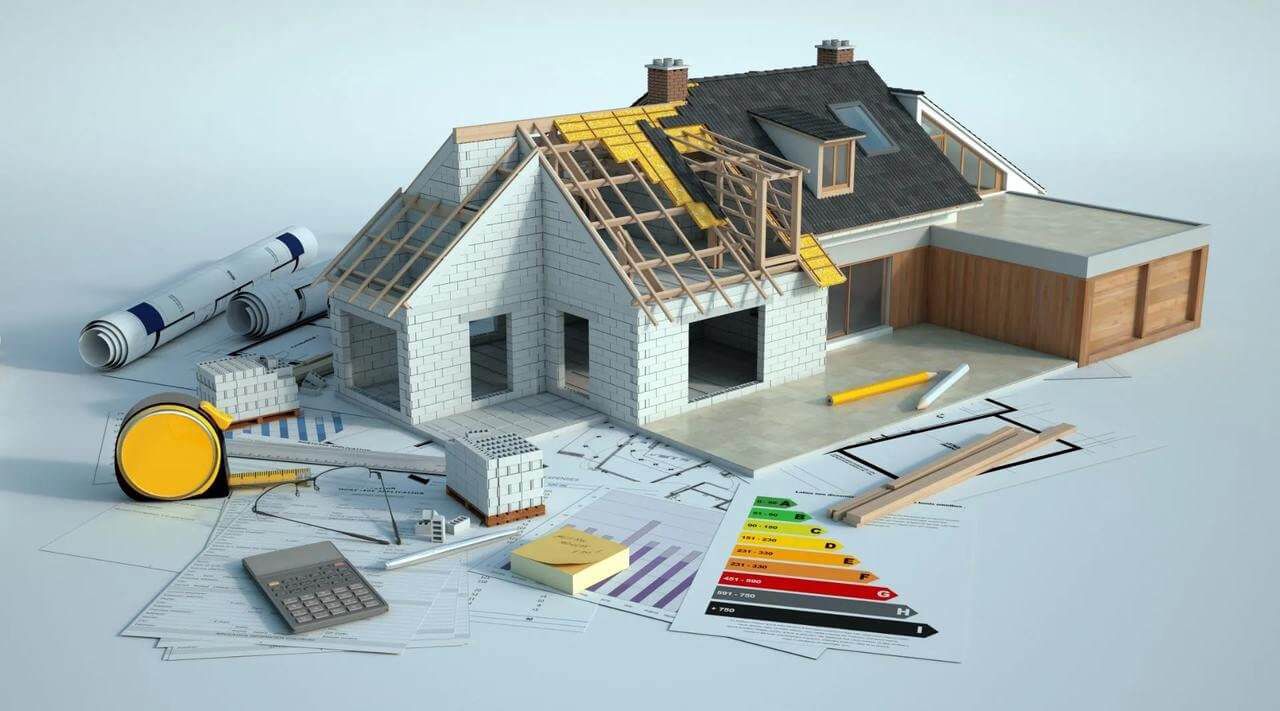Renovation vs. New Construction: Which is Right for You?
When planning a major home or commercial project, one of the biggest decisions you’ll face is whether to renovate an existing building or start fresh with new construction. Both options have their pros and cons, and the right choice depends on your budget, goals, and the current state of the property. Let’s break down the key factors to help you make an informed decision.
- Budget
Your budget is often the deciding factor in choosing between renovation and new construction.
- Renovation:
Renovating an existing property is usually more cost-effective in the short term. Depending on the extent of the changes, you can save on material costs, labor, and permitting. However, unexpected expenses can arise during renovation, such as hidden structural issues or outdated systems that need upgrading. These surprise costs can quickly add up. - New Construction:
While building a new structure may seem more expensive upfront, it offers the benefit of being more predictable. New construction projects come with fewer unknowns since everything is being built from scratch. This often means fewer unexpected repairs or adjustments down the line, making it easier to stick to your budget. Additionally, energy-efficient technologies can be incorporated to save on long-term operational costs.
- Timeframe
The timeline of your project is another critical consideration.
- Renovation:
Renovations can often be completed more quickly, especially if the changes are cosmetic or minor. Since you’re working with an existing structure, there’s no need to wait for foundational work. However, if your renovation uncovers deeper issues (like mold, faulty wiring, or structural problems), it can significantly extend the timeline. - New Construction:
A new build generally takes longer, as it involves more stages—from securing permits to breaking ground and completing the finishing touches. But, with a well-organized plan, you may avoid some of the delays common in renovation projects. Starting from scratch also gives you the freedom to control the timeline better, assuming weather and other factors cooperate.
- Customization
The level of customization you need will influence your decision as well.
- Renovation:
Renovating limits you to the existing layout and structure of the property. While you can make significant changes, you’re still constrained by what’s already there, including foundation, wall placement, and plumbing. However, if you’re attached to certain architectural features or wish to preserve the character of an old building, renovation may be the ideal option. - New Construction:
Building new gives you complete control over the design and layout. You can start from a blank slate and create a space that meets all of your specifications. Want an open-plan living area? Larger windows? A custom kitchen layout? New construction allows for total flexibility to achieve exactly what you want without the limitations of an existing structure.
- Structural Condition
The current condition of the building will play a big role in your decision.
- Renovation:
If the property is in good shape with a solid foundation, renovation can make a lot of sense. In this case, you’re upgrading or modernizing what’s already there, which can be a faster and more affordable option. However, if the building has major structural issues, like a crumbling foundation, significant water damage, or faulty electrical systems, it might not be worth the investment to repair. - New Construction:
If the existing property has severe structural problems, or if the cost to bring it up to code is exorbitant, new construction could be the more viable option. Starting from scratch ensures you’re building on a solid foundation with new materials that meet today’s safety and building codes.
- Environmental Considerations
For those concerned about the environment, both renovation and new construction have their own set of advantages.
- Renovation:
Renovating allows you to reuse existing materials and minimize waste, which can be more environmentally friendly. Plus, you can retrofit older buildings with modern energy-saving upgrades, like better insulation and efficient HVAC systems, without contributing to urban sprawl. - New Construction:
New construction can be designed from the ground up to be energy-efficient and eco-friendly. Incorporating green building techniques like solar panels, sustainable materials, and water-saving systems is easier in a new build, giving you a long-term eco-friendly solution. However, tearing down an old structure may generate a significant amount of waste unless you commit to recycling the materials.
- Long-Term Investment
Think about the long-term benefits of your project, both in terms of resale value and maintenance.
- Renovation:
A well-executed renovation can increase the value of an older property while preserving its charm. It’s a good option if you’re updating for personal use and don’t anticipate any major repairs for a few decades. However, older properties can require more maintenance in the long run, especially if the renovation didn’t address all structural or mechanical concerns. - New Construction:
New construction may have a higher resale value, especially if it’s built in a desirable area and with modern amenities. The need for repairs and maintenance will also be minimal in the first few years, which means lower upkeep costs and fewer hassles for homeowners or investors.
Conclusion: Which is Right for You?
Choosing between renovation and new construction ultimately depends on your specific circumstances. If you’re working within a tight budget or are attached to the existing structure, renovation may be your best bet. On the other hand, if you’re looking for full customization, energy efficiency, or a long-term investment, new construction might be worth the initial cost and extended timeline.
Before making a decision, it’s essential to consult with a professional contractor or architect to assess the condition of your property and discuss your goals. They can help you weigh the options and determine which path will give you the best results for your budget and vision.

